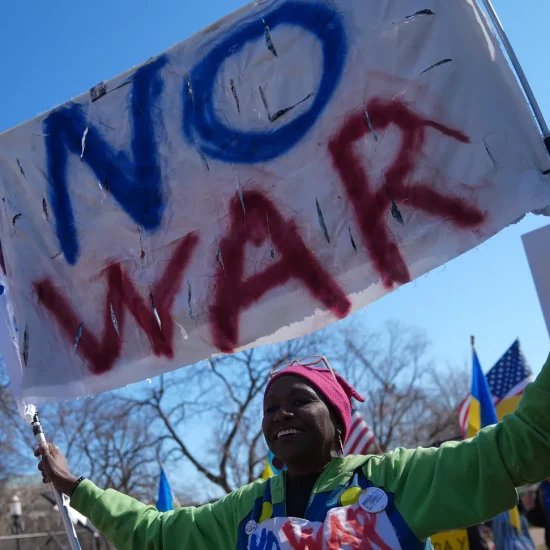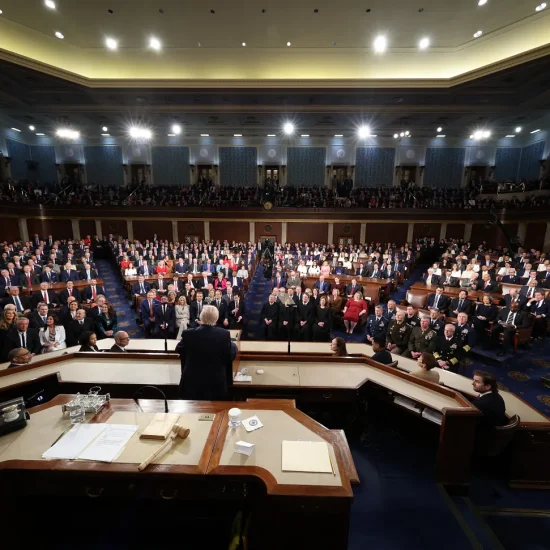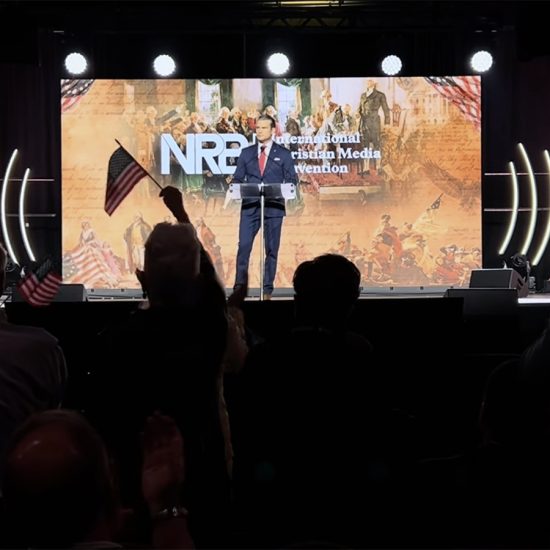
Last week, the FBI arrested another person on charges related to their behavior at the U.S. Capitol during the Jan. 6, 2021, insurrection. As investigators continue to pour through video evidence of that day and identify people, these arrests keep occurring — with nearly 900 people booked over the past 21 months. But this recent arrest in Ohio caught our attention because the man charged with several felonies and misdemeanors is a pastor.
William Dunfee, who founded New Beginning Ministries in 2001, held a bullhorn and yelled at Capitol police as the pro-Trump mob stormed the area. He declared they were “taking our house” because “this election has been stolen.” He added that elected officials “need to fear us” because the crowd was “standing up for our president.” After leading the crowd in a “fight for Trump” chant, Dunfee helped push a metal barricade into police officers and rushed up onto the Capitol steps. When another rioter later announced Congress had stopped its proceedings to certify the 2020 presidential election, Dunfee shouted, “Hallelujah.”
Just 10 days before the insurrection, Dunfee stood in his church to sound the alarm: “The government, the tyrants, the socialists, the Marxists, the progressives, the RINOs, they fear you. And they should.” In a sermon five months after he attacked police officers, he complained to his congregation that he and other “patriots” went to the Capitol to stop a “stolen” election but then got smeared as “a bunch of terrorists.”
Dunfee isn’t the first pastor arrested for his role in the Jan. 6 insurrection. A pastor-turned-politician in New Mexico who used a bullhorn to lead rioters in a prayer was arrested shortly after the deadly day. A father-son pastoral team in Florida were both arrested last year. A pastor in Colorado was arrested in July. Other ministers were also present that day but haven’t faced charges, like controversial Tennessee preacher Greg Locke and a Catholic priest from Nebraska who claimed he performed an exorcism inside the Capitol.
Additionally, countless clergy members who didn’t trek to Washington, D.C., preached sermons ahead of the insurrection that added to the false claims about the election and helped baptize the efforts to overturn the results. Like a pastor in Texas who insisted God promised Trump would remain in office and so urged people to be “warriors.” And even now on any given Sunday one can hear from pulpits across the country the type of Christian Nationalism that helped fuel the insurrection.
And that’s why other pastors are speaking out in opposition to Christian Nationalism. They see the threat this political religion poses to both Christian faith and American democracy. They may not lead large churches or appear regularly on cable news, but their voices deserve our attention.
In this issue of A Public Witness, we introduce you to an effort earlier this month by ministers across the country to preach against Christian Nationalism on World Communion Sunday. We then take you to church to hear excerpts from the sermons before we issue an altar call of our own.
World Communion Sunday
The pastors arrested for participating in the insurrection on Jan. 6 conflated a political agenda with the reign of God. Such Christian Nationalism promotes a bad theology that simultaneously reduces God to the partisan of a single nation and transforms one’s country into an idol beyond critique.
In addition to the scriptural cautions against such errors, the liturgical calendar of many U.S. churches dedicates the first Sunday of October as a natural witness against Christian Nationalism. That’s when many congregations observe World Communion Sunday, which emphasizes the global oneness of Christ’s Church.
Started in 1933 by a Presbyterian pastor in Pennsylvania, the observance grew after the Federal Council of Churches (a forerunner of the National Council of Churches) promoted the effort in 1940 as nations met each other on the battlefields of World War II. In contrast to the nature of human division, World Communion Sunday witnesses to the alternative reality of Christian unity that transcends the borders of nation-states.
For some pastors, that made this year’s World Communion Sunday on Oct. 2 an ideal occasion for challenging Christian Nationalism’s conflation of American and Christian identities. They named their effort “Preachers United Against Christian Nationalism” and sought to rally clergy to use their sermons that week to denounce the dangers inherent in this ideology.
The rest of this piece is only available to paid subscribers of the Word&Way e-newsletter A Public Witness. Subscribe today to read this essay and all previous issues, and receive future ones in your inbox.






